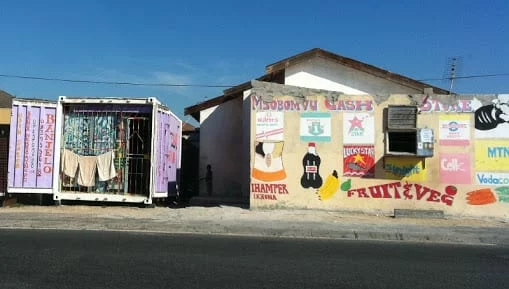Foreign-owned spaza shops in South Africa have sparked a national uproar due to revelations that they are selling expired products to customers.
Within a month, seven children have died across the country after falling sick from eating snacks, mainly biscuits, allegedly bought from foreign-owned spaza shops.
Two children died in a similar way in Kanana, Orkney, in North West this week.
On Monday, 47 kids were admitted at the Sebokeng Hospital in the Vaal after they fell sick, allegedly from eating snacks, also bought from local spaza shops.
Following slow reaction by relevant state authorities, civic movement Operation Dudula has taken the matters into its own hands by raiding foreign-owned businesses.
However, in Tshwane, the city health officials acted with the police to conduct an inspection of the foreign-owned businesses.
Bizz Tracers’ forensic and crime expert Calvin Rafadi said that the mushrooming of unregulated retail businesses in the country owned by foreigners have become a serious problem in South Africa, especially in townships and rural areas.
“This problem needs to be dealt with as soon as possible. There is a need for regulation and regular inspections of these businesses by the state will prevent such deaths caused by expired goods and other illegal activities,” said Rafadi.
ASC Consultants CEO Mthokozisi Nkosi, an expert in food safety and public health, said people who sold consumable goods had to be regulated.
“There is legislation which spells out the regulations businesses should comply with. Regulation R638 says traders in food must acquire a relevant permit to do business. The foreigners open spaza shops everywhere and do not have trade permits.” He added that there is a shortage of municipal health inspectors in the country, which he says compounds the problem of unregulated spaza shops.
“Because of lack of capacity, some municipalities do not follow proper channels as they dish out certificates without doing any site inspection. Beyond that, there are no inspectors checking on the businesses if the owners follow rules and regulations to justify the permits they have,” he said.
Competition Commission spokesperson Siyabulela Makunga said: “While we appreciate government’s independence in regulating trade at all spheres, the commission, through its Grocery Retail Market Inquiry released in November 2019, called for an integrated regulatory framework, which addresses all inefficiencies that exist in spaza shops and small independent retailers.
“We have encouraged the government to, among other things, facilitate the establishment of distribution centres to be in peri- and non-urban areas to service small and independent retailers and wholesalers.
Makunga added: “We have also recommended that the government should establish an incentive programme that will provide seed finance for innovative commercial models of private businesses that aim to offer support for small informal spaza shops.



